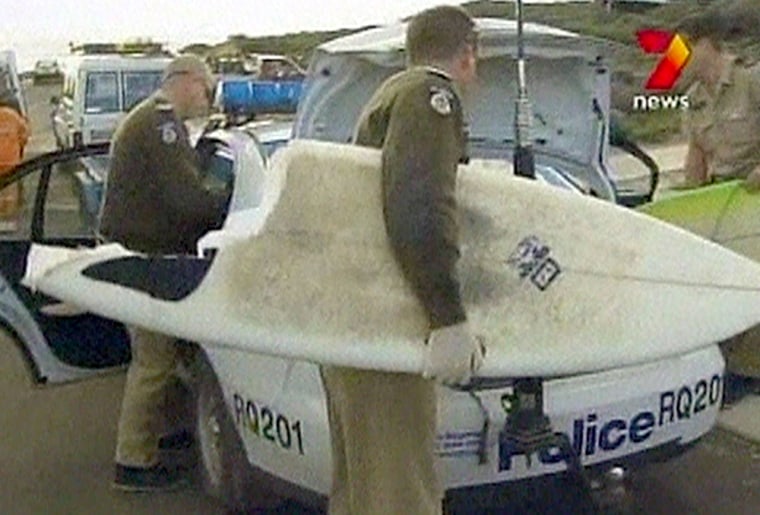The death of a surfer mauled by a shark has rekindled debate over the safety of people swimming off Australia’s world-renowned beaches but also the plight of sharks, some species of which are being hunted to the brink of extinction.
Bradley Adrian Smith, 29, died Saturday afternoon after being savaged in the Indian Ocean off Left Handers Beach, south of Western Australia state capital, Perth. Witnesses said Smith tried to fight off at least one and possibly two sharks, which officials said most likely were great whites, although they said they could also have been bronze whaler sharks.
Authorities Monday continued to hunt for the killer shark and said they would likely shoot it if they can conclusively prove they have found the animal responsible for Smith’s death.
But the shark also found an unlikely ally — with the dead surfer’s brother saying the animal should not be killed.
“I don’t believe that the shark should be killed just for the sake of what’s happened in this situation,” Stephen Smith told reporters on Sunday. “I don’t believe that Brad can be revenged by killing a shark.”
Endangered species
In many parts of the world, great white sharks, which can grow to 23 feet in length, are listed as an endangered species. They breed at a slow rate and have in the past been targeted by hunters or accidentally caught in fishermen’s nets.
Other smaller species of shark are being decimated by fishermen who hunt them for their fins — a delicacy in some Asian nations — cutting off the fin before dumping the animal back in the ocean to die.
Orin Lifshitz, head curator at the Aquarium of Western Australia in Perth, said hunting for and killing the shark would be not only difficult, but pointless.
“If you hunt him, so what? A day later another one cannot come and kill someone else?” he told The Associated Press in a telephone interview.
But while many conservationists appeal for sharks to be better protected from humans, authorities in beachside suburbs are more interested in ensuring swimmers are safe.
Giant nets
Many of Australia’s most popular beaches are protected by giant nets intended to prevent humans and sharks swimming in the same water.
But even that apparently benign way of preventing attacks has fierce critics, who say the death toll such nets inflict on animals like whales and turtles is not justified given the rarity of shark attacks.
The death last year of an 84-year-old man killed while swimming in an Australian canal linked to the nearby Pacific Ocean was one of only four fatal shark attacks around the world in 2003, according to an international list compiled by Florida Museum of Natural History.
Kate Davey, national coordinator of the Australian Marine Conservation Society, said swimmers and surfers should be educated better about the threats posed by sharks.
“Instead of pretending that this issue doesn’t exist, and saying put up nets and then we can protect everybody from sharks, what we actually need is a public education campaign to teach people how to live with sharks,” Davey said.
